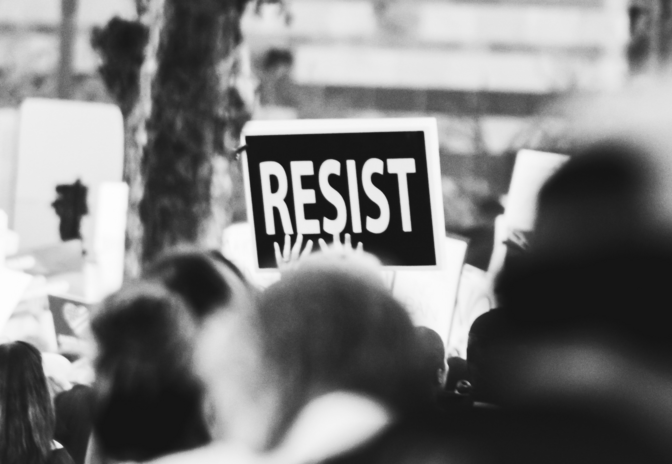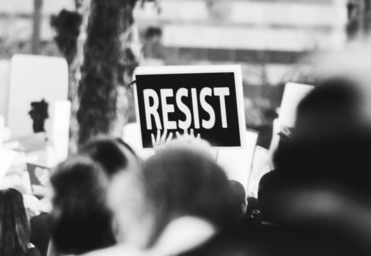If you’ve been paying attention to the news or your college campus, you can see that encampments of student protestors have been popping up around the nation. We’ve been hearing a lot of conflicting statements about what’s happening on these campuses, particularly from those in charge of our government. But what’s the truth about what’s taking place? Why are students protesting? I will be answering these questions and more in this article.
Divestment, now, and why?
Protests have been happening all over the country and on college campuses since Israel began its military operation in Gaza. People have been moved to protest and speak out as the civilian death toll has risen past 34,000, and Israel has no intentions of stopping any military action. Our president and his administration has continued their support of Israel, despite the concerns shared by people all over the world, humanitarian organizations, and the United Nations. The federal government has passed multiple aid packages since October, the most recent was last week where an additional $26 billion was sent to Israel. It’s become clear that Israel intends to continue with their military operation, and college students have grown tired of their school’s and governments complacency with Israel’s actions.
But what do colleges in America have to do with a country halfway across the world? The answer is these university’s investments. Universities in the U.S. tend to have what is referred to as an endowment, “which is donated funds generally invested in stocks, bonds, and other financial instruments to help the university earn money.” Some of the companies these schools invest in, like Google and Airbnb, have ties to Israel. These companies may be weapons manufacturers like Lockheed Martin and Boeing, as well. Students are utilizing their right to free speech and protest to ask their universities to divest from these companies due to their relationships with the state of Israel. However, some schools, including Columbia University, the catalyst to these student protests, have made it clear they are not divesting from Israel.
Is college divestment possible, and will it even have an impact? This question isn’t new. College protests are not something new either, they’re woven into the background of a lot of recent American history. Including, the Civil Rights Movement and the Anti-War movement sparked by the Vietnam War. Students are camped out on the same grass that students at Columbia and UC Berkeley were protesting the Vietnam War nearly 60 years ago. However, the college protests most similar to this current movement are the student-led protests against apartheid in South Africa in the 1980s. In a similar fashion, students from Columbia to UNC Chaphill established encampments and occupied university buildings, pressuring their schools to divest from companies like Coca-Cola and Ford, who had ties to Apartheid South Africa. Their protests worked, leading to 155 universities divesting. They even managed to get the U.S. government to economically sanction South Africa.
It’s clear that divest is possible, but will it change anything? This is something many people are asking and answering. Some colleges like the University of California have made it clear that they will never be divesting for Israel and are against any boycotts of these kinds. Some have stated that divestment will likely have no impact on Israel’s economy. However, despite these facts, protesting and divesting isn’t effortless. These protests will likely have more of a social impact rather than a financial impact. All people can talk about these days are the college protests, members of Congress are currently trying to pass laws in direct response to these protests, and the Speaker of the House has even called for the National Guard to be sent to these campuses. The Prime Minister of Israel has even condemned these protests. These protests are striking up a necessary conversation and making those in power uncomfortable. College students can make change, and these people are aware of it, that’s why they’re intimated.
From columbia to all
Now that I shared the message and the goals behind these protests, I want to spread light on them and share their origins! As stated earlier, Columbia University is the catalyst to this widespread movement. The first encampment on Columbia’s campus went up on April 17, 2024, which is ironically the day the university president was being grilled by Congress for what Republicans referred to as her mishandling of the Antisemitism arising on her campus.
The next day, the NYPD was called on students, by the university’s president, and over 100 protestors were arrested. Soon students across the country would establish encampments across the nation, at schools like the University of Michigan, inspired by the actions of those at Columbia.
On the West Coast, the valedictorian at USC, a visibly Muslim woman who has been outspoken about Palestine, had her speech canceled due to “safety concerns.” However, it has been rumored that it was canceled due to fears she would make comments about what’s happening in Gaza. Students at USC later established encampments and protests of their own. They spoke out about the silencing of their valediction and their school’s investments with companies allied with Israel. Despite the growing police presence on Columbia’s campus, students are still protesting, and the escapements are growing day by day
Protests are growing all over the country at schools in Texas, like UT Austin and UCLA in California. However, these protests are becoming even more dangerous for students as schools are inviting police officers to their campuses, who are escalating instances with protesters, tearing down their encampments, and beating them. However, students are maintaining their ground and refusing to move unless their schools divest from these companies and call for an end to Israel’s military actions.
last thoughts
Despite what some believe, it’s clear that these encampments aren’t going any where and these students will continue to protest until their demands are met. It’s been demonstrated before the power of college students and their protests, and these students will lead to great change.


